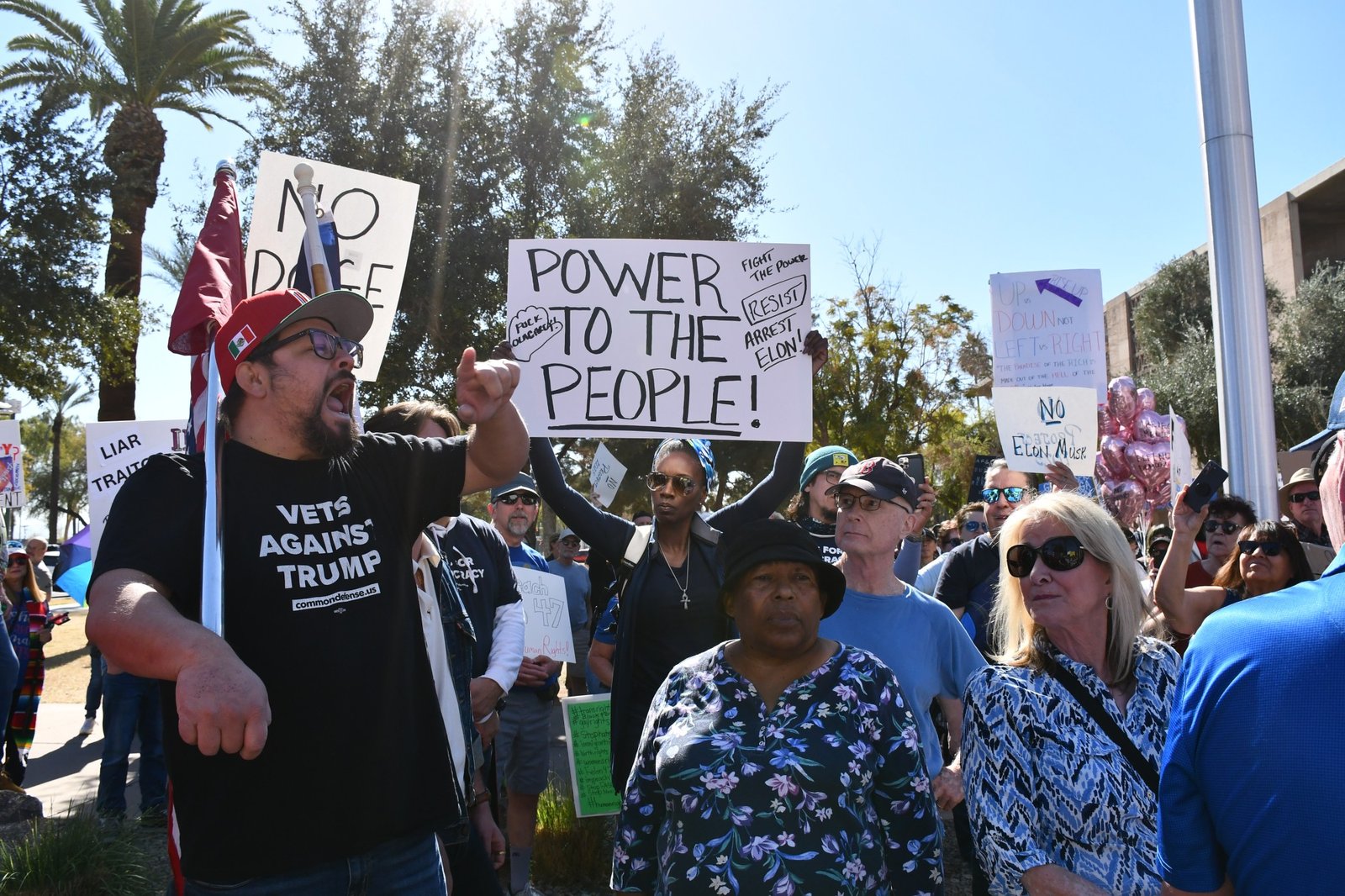50501 protest
Veterans and Activists Join Forces in Arizona’s 50501 Protest Against Trump, Musk, and Project 2025

Hundreds gathered at the Arizona Capitol in Phoenix on Wednesday to protest President Donald Trump’s actions, particularly those stemming from Project 2025. Attendees included young members of the queer community, veterans, and senior citizens.
Participants showcased their solidarity by draping themselves in vibrant flags, including those of Mexico, Palestine, and LGBTQ pride. Signs such as “Power to the People,” “Deport Elon Musk,” and “The most dangerous minority is the rich” were seen throughout the crowd.
Protesters voiced strong opposition to Project 2025 and called for respect for the rights of immigrants and transgender individuals. Concerns were raised about the influence of billionaire Elon Musk and the potential impacts on the federal government.
Chris Hill, a 20-year Army veteran and father of three, expressed his motivations for joining the protest. “Our country is in crisis,” he stated, emphasizing the responsibility of the public to reclaim democratic values.
Sabrina Taylor, a nonbinary individual from Phoenix, articulated solidarity with the queer community and immigrants. They remarked, “If you don’t do anything about it, no change is going to happen,” highlighting the challenges of living authentically under current political pressures.
This demonstration in Phoenix was part of a larger initiative, dubbed 50501, consisting of 50 protests across states on the same day. Organizers aimed to address perceived democratic undermining by the Trump administration.
“Today, we send a message that democracy matters,” Hill added, underscoring the collective sentiment within the crowd. According to the Arizona Department of Public Safety, the protest attracted approximately 400 participants.
Although the protest was deemed peaceful, state troopers advised demonstrators to relocate due to regulations surrounding megaphone use on Capitol grounds.
Fanny Robles, a Mexican immigrant, spoke against deportation practices that divide families. She emphasized how fear of detainment negatively impacts not just individuals but the local economy at large.
Diane Klein, a concerned citizen from Mesa, criticized the erosion of the separation of powers and voiced concerns about potential loss of life tied to the dismantling of foreign aid organizations.
Rallies echoed with chants including “F*ck Trump” and “Deport Musk,” as protesters made their way around significant state buildings.
Ricardo Reyes, a veteran who supported Senator Ruben Gallego in his campaign, urged others to hold politicians accountable for their actions. “We don’t idolize politicians. We hold them accountable,” he emphasized.
The recent Laken Riley Act, which enforces detentions for non-violent crimes, also stirred dissent among attendees. Critics expressed disappointment in Gallego for his support of the legislation.
Coni Beyer echoed these sentiments, articulating that political leaders should prioritize the nation’s welfare. “Your only job now is to do everything you can to save this country,” she insisted.
Derek Duba, a fellow Army veteran, remarked on the importance of standing up for marginalized communities. “We’ve gotta get involved and support those under attack,” he stated, noting the need for proactive engagement rather than complacency.
As protests concluded, many expressed hope that this would mark the beginning of sustained activism leading into the 2026 elections.


















